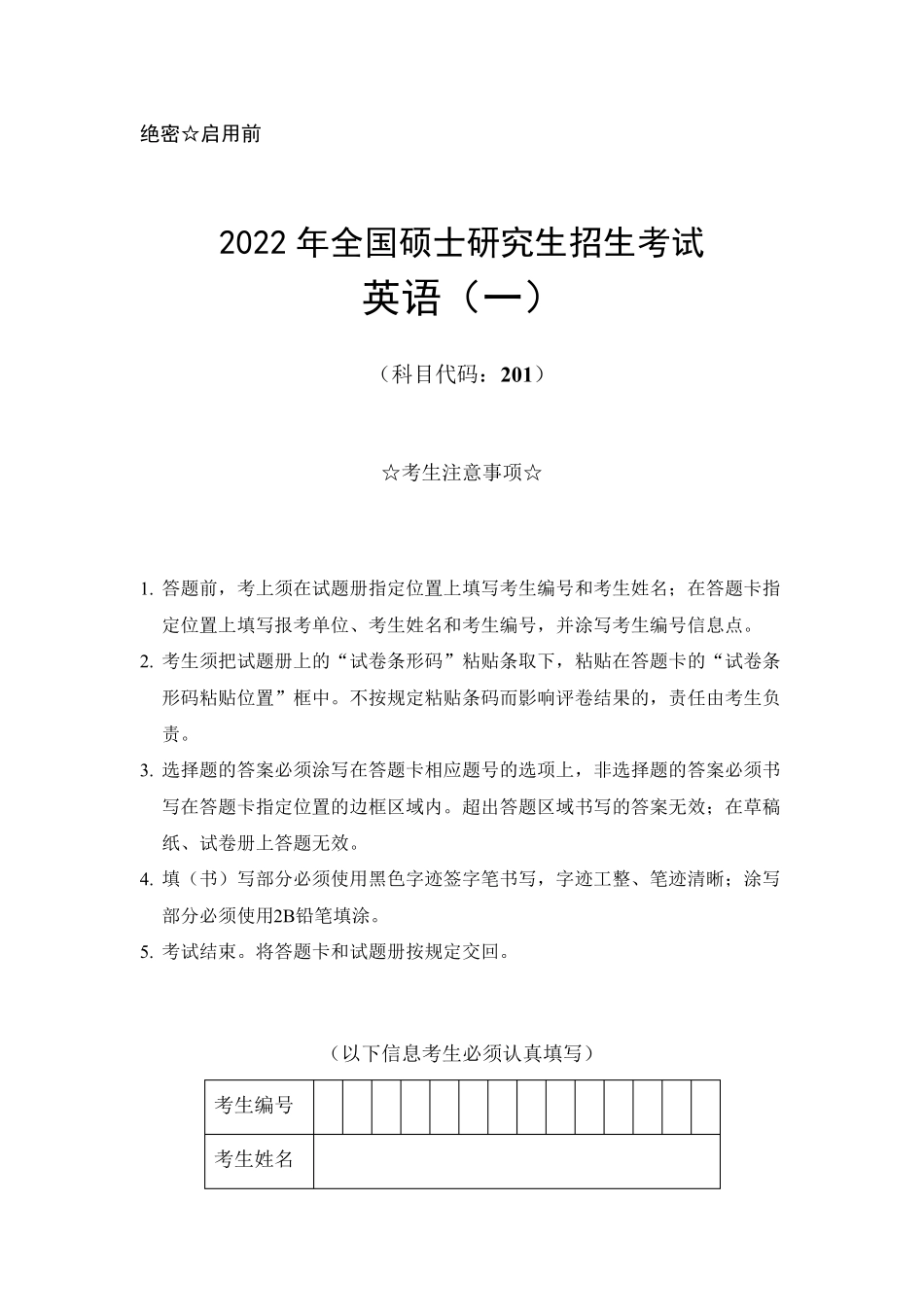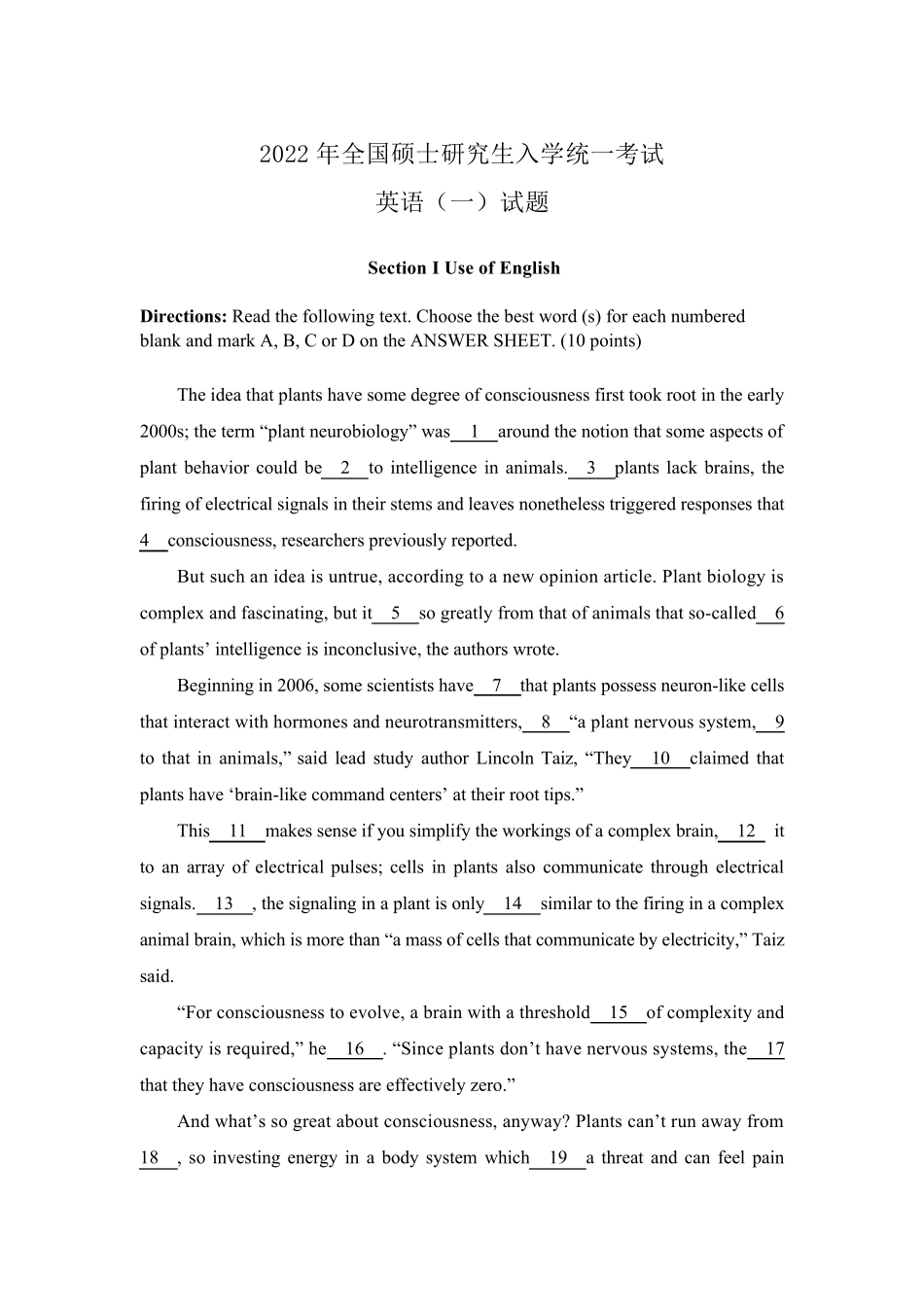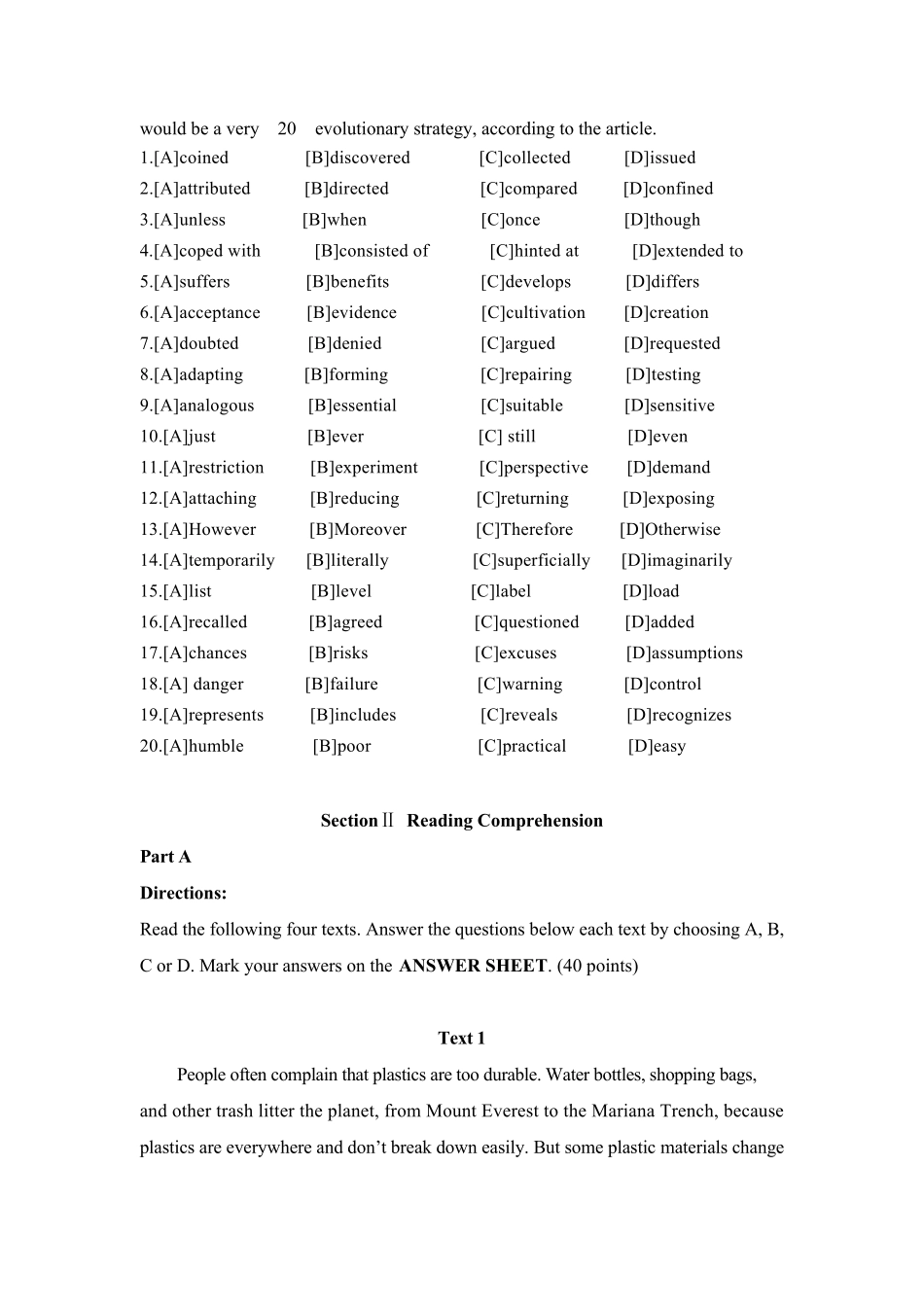绝密☆启用前 2022 年全国硕士研究生招生考试 英语(一) (科目代码:201) ☆考生注意事项☆ 1. 答题前,考上须在试题册指定位置上填写考生编号和考生姓名;在答题卡指定位置上填写报考单位、考生姓名和考生编号,并涂写考生编号信息点。 2. 考生须把试题册上的“试卷条形码”粘贴条取下,粘贴在答题卡的“试卷条形码粘贴位置”框中。不按规定粘贴条码而影响评卷结果的,责任由考生负责。 3. 选择题的答案必须涂写在答题卡相应题号的选项上,非选择题的答案必须书写在答题卡指定位置的边框区域内。超出答题区域书写的答案无效;在草稿纸、试卷册上答题无效。 4. 填(书)写部分必须使用黑色字迹签字笔书写,字迹工整、笔迹清晰;涂写部分必须使用2B 铅笔填涂。 5. 考试结束。将答题卡和试题册按规定交回。 (以下信息考生必须认真填写) 考生编号 考生姓名 2022 年全国硕士研究生入学统一考试 英语(一)试题 Section I Use of English Directions: Read the following text. Choose the best word (s) for each numbered blank and mark A, B, C or D on the ANSWER SHEET. (10 points) The idea that plants have some degree of consciousness first took root in the early 2000s; the term “plant neurobiology” was 1 around the notion that some aspects of plant behavior could be 2 to intelligence in animals. 3 plants lack brains, the firing of electrical signals in their stems and leaves nonetheless triggered responses that 4 consciousness, researchers previously reported. But such an idea is untrue, according to a new opinion article. Plant biology is complex and fascinating, but it 5 so greatly from that of animals that so-called 6 of plants’ intelligence is inconclusive, the authors wrote. Beginning in 2006, some scientists have 7 that plants possess neuron-like cells that interact with hormones and neurotransmitters, 8 “a plant nervous system, 9 to that in animals,” said lead study author Lincoln Taiz, “They 10 claimed that plants have ‘brain-like...


